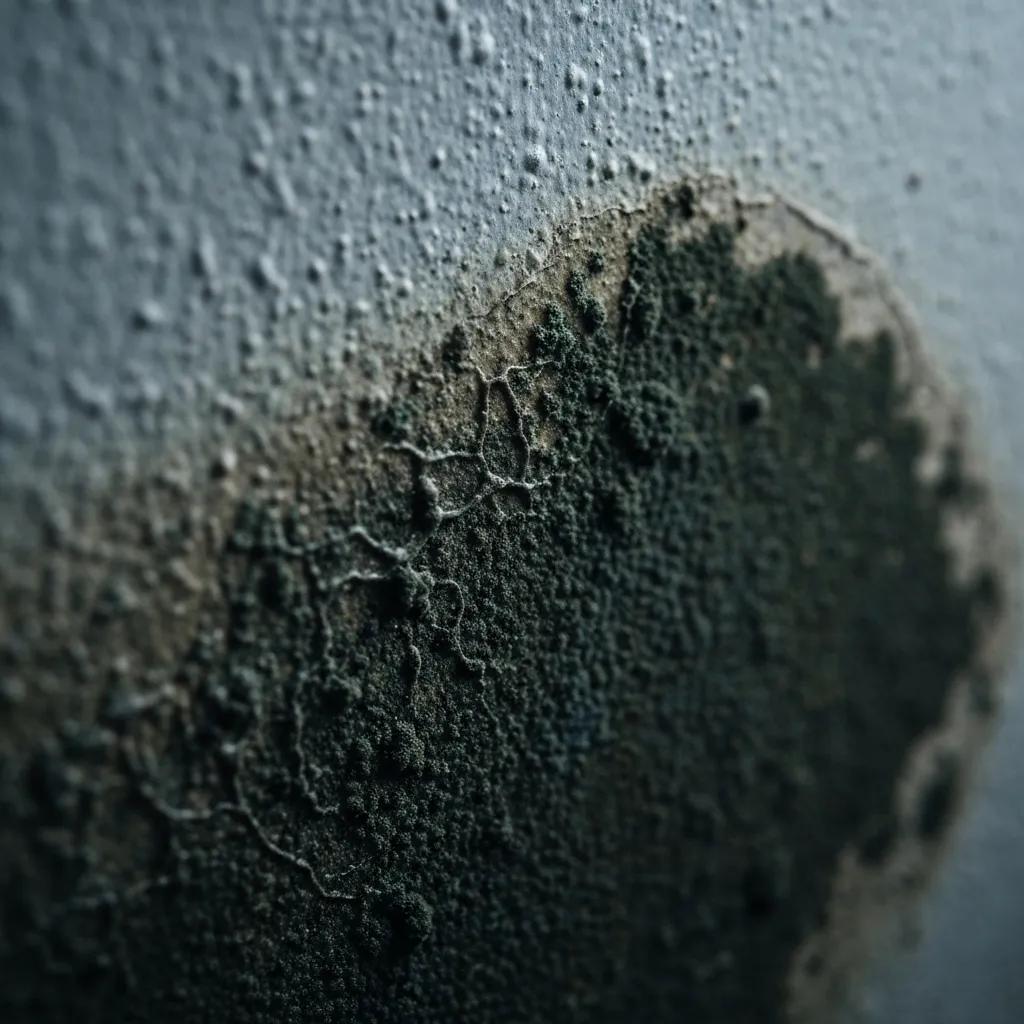Spotting a Damaged Water Line: Your Complete Guide to Underground Leaks and Symptoms
Identify key signs of a damaged water line with expert insights. Knowing these signs helps homeowners address issues promptly and avoid costly repairs.
Free Estimate

Catching a compromised water line early is key to avoiding expensive foundation fixes, shocking utility bills, and nasty mold growth. As your go-to Orlando plumbing experts for main water line repairs, Brightwater Plumbing Orlando is here to help you spot the tell-tale signs—from surprisingly high water bills to mysterious sinkholes in your yard—and act fast. This guide will walk you through:
- How to recognize internal red flags like weak water pressure, odd water color, and strange pipe noises
- What outdoor clues—damp patches, unusually green grass, shifting soil, and cracks in your home—are trying to tell you
- The connection between hidden leaks and the development of mold or mildew indoors
- The most common reasons main water lines fail here in Central Florida
- What immediate steps to take, including shutting off your water, performing simple checks, and knowing when it's time to call the pros
How Can You Tell If Your Main Water Line Is Broken or Leaking?
A broken or leaking main water line throws a wrench in everything: it messes with your water pressure, inflates your utility bill, and can even affect your water quality. Knowing each symptom helps you figure out if it’s a simple meter check you need, or a full-blown replacement by a licensed plumber.
What Does an Unexplained High Water Bill Indicate About Water Line Leaks?
A sudden jump in your monthly water bill is a dead giveaway for a hidden leak somewhere in your plumbing. If your water usage habits haven't changed but your bill has shot up by 20–30%, it’s likely a cracked or corroded main line is letting water escape underground.
To be sure, compare your recent bills. If you see consistent increases over a couple of months, it’s time to investigate. Catching this early can save you hundreds of gallons of water and stop further damage to your line.
How to Perform a Water Meter Test to Detect Hidden Leaks?
First, turn off every water fixture and appliance in your home to make sure no water is being used externally. Then, keep an eye on your water meter dial for at least 15 minutes:
- If the meter continues to spin, you’ve got an underground or slab leak.
- If the reading stays steady, you’re likely in the clear.
Doing this simple check every few months can help you catch leaks early and avoid major water main repairs down the line.
Impact of Water Leaks on Home Foundations and Water Meter Leak Detection
Undetected slab leaks can significantly impact a home's structural integrity by causing soil erosion and destabilizing the ground beneath the foundation, leading to cracks in walls and floors. A practical method for homeowners to detect hidden leaks is to perform a water meter test: if the meter dial continues to move for at least 15-30 minutes after all water fixtures are shut off, it indicates an active leak.
This supports the article's explanation of how water leaks affect foundations and provides a verified method for homeowners to perform an initial leak detection test using their water meter.
What Are the Symptoms of Low Water Pressure Caused by Water Line Damage?
If you're noticing weak water pressure at multiple faucets and showerheads, it often points to a damaged main line that's restricting the flow. Things like sediment buildup from corroded pipes, a partially collapsed pipe, or even tree roots can cause:
- A weaker stream from your kitchen and bathroom taps
- Inconsistent water flow, especially during busy times
- Sudden bursts of air or banging noises (water hammer) from your outlets
If the pressure loss continues even after you've cleaned your faucet aerators, it’s time for a professional to check your water main for cracks or blockages.
How Does Discolored or Cloudy Water Signal Corroded or Damaged Pipes?
Water that looks rusty brown, yellow, or milky usually means your pipes are corroding on the inside or that soil is getting in through tiny cracks. Iron and manganese can leach from old cast-iron or galvanized steel pipes, tinting your drinking water and potentially causing health issues.
Cloudy water might also be a sign of air pockets caused by a sudden leak or break. If the discoloration doesn't clear up after running your taps for a few minutes, book an inspection to prevent contamination and further pipe damage.
What Do Strange Noises from Pipes Reveal About Water Line Problems?
Hissing, bubbling, banging, or gurgling sounds coming from your walls and floors are often the sound of escaping water or trapped air in damaged pipes.
- A constant hissing sound usually means there’s a small, pressurized leak.
- Occasional banging (water hammer) suggests sudden pressure changes due to a blockage or a split pipe.
- Gurgling sounds when your fixtures are off can indicate soil entering the pipe through a breach underground.
When these noises are combined with pressure drops or higher bills, they’re strong indicators of main line issues that require advanced leak detection.
What Are the Visible Signs of an Underground Water Leak in Your Yard?

Underground leaks often show up outdoors as unexpected disturbances in your yard. Recognizing these signs can help you avoid major landscape upheaval and costly digging.
Here’s a breakdown of common yard indicators and what they mean:
How Do Wet Spots, Puddles, or Sinkholes Indicate Water Line Damage?
Persistent damp areas in your yard, especially when it hasn’t rained, are a clear sign that water is escaping from underground. When pipes crack, the escaping water can pool above, creating soft spots and potentially leading to sinkholes. If you ignore these wet patches, the soil erosion can weaken your driveways, walkways, and even your home’s foundation.
Can Lush or Overgrown Grass Signal a Hidden Water Leak?
Patches of grass that are noticeably greener and grow faster than the surrounding lawn often indicate a leaking water main underneath. While a vibrant green lawn might seem like a good thing, it’s usually a sign of constant water loss. Addressing this symptom not only saves water but also prevents your yard from collapsing later on.
How Does Soil Shifting or Erosion Relate to Water Line Breaks?
When water erodes the soil around your pipes, it can cause the ground in your yard to shift or even collapse. This undermining can lead to sunken concrete slabs, cracked patios, and unstable areas around your pool. Fixing the leak quickly helps restore the ground’s stability and prevents expensive repairs to your concrete structures.
What Foundation Cracks or Structural Damage Result from Water Line Leaks?
As a leak saturates the soil beneath your foundation, the resulting hydrostatic pressure can push against your walls and floors, causing cracks. Uneven settling due to soil erosion can also lead to warped door frames, sloping floors, and compromised structural safety. Getting a licensed plumber to detect and fix the leak early can prevent permanent foundation damage.
How Does Mold or Mildew Growth Inside Your Home Indicate a Damaged Water Line?

Hidden main line leaks can release moisture into your walls, ceilings, and subfloors, creating the perfect breeding ground for mold and mildew. These fungi don’t just stain surfaces; they also degrade your indoor air quality and can pose serious health risks.
Why Does Hidden Water Line Leakage Promote Mold and Mildew?
Excess humidity from undetected leaks saturates building materials like drywall and insulation, giving mold spores the moisture they need to thrive. Over time, mold can spread behind walls and under floors, often going unnoticed until the damage is significant. Getting rid of it requires both fixing the leak and professional mold remediation to ensure your indoor air is safe again.
Understanding the Link Between Water Leaks and Mold Growth
Even minor, undetected water leaks can create ideal conditions for mold to grow within 24 to 48 hours, posing health risks and degrading indoor air quality. Hidden plumbing leaks, often behind walls or under floors, are a primary cause of mold proliferation, with appliance failures contributing significantly to indoor leaks.
This research directly supports the article's claims about hidden leaks leading to mold growth and the associated health risks, emphasizing the rapid onset of mold in damp conditions.
What Are the Health Risks Associated with Mold from Water Line Damage?
Exposure to mold can lead to respiratory problems, allergic reactions, asthma flare-ups, and sinus congestion, particularly affecting children, the elderly, and those with weakened immune systems. Persistent mold in your living space can impact your overall health and may even lead to costly medical treatments. Repairing the water line promptly stops moisture from entering your home and protects your family’s well-being.
What Are the Common Causes of Main Water Line Damage in Orlando and Central Florida?
Knowing why water mains tend to fail in Central Florida can help you anticipate potential issues and schedule preventative maintenance.
Here are the typical culprits behind water line breaks:
Common Causes of Water Main Breaks and Pipe Failure
Studies indicate that aging pipes, particularly those made of cast iron and galvanized steel, are a leading cause of water main breaks due to natural deterioration over time. Other significant factors include corrosion, soil movement, high water pressure, and tree root intrusion. Additionally, excavation work can inadvertently damage buried lines, contributing to pipe failures.
This information verifies the article's section on the common causes of main water line damage, including material degradation, environmental factors, and external impacts.
What Should You Do When You Suspect a Damaged Water Line? Immediate Steps and Professional Help
Acting quickly when you suspect a main line failure can significantly limit damage and costs. Here are the crucial steps to take before you call your plumber:
- Shut Off Your Main Water Valve Find the shut-off valve, usually located at your water meter or inside your home near the foundation. Turn it clockwise until it’s snug. This stops more water from flooding the area and relieves pressure on the damaged section.
- Document and Contain Take pictures of any wet areas. If there’s indoor flooding, collect water in buckets and use towels to protect your floors. Move furniture away from damp spots to prevent mold and damage to your belongings.
- Perform a Quick Meter Check With all water fixtures turned off, check if your meter is still running. If the dial keeps moving, it confirms water is still escaping and urgent leak detection is needed.
- Contact a Licensed Orlando Plumber Call Brightwater Plumbing Orlando’s 24/7 emergency line for expert water main repair and underground leak detection. Our skilled team uses advanced tools like acoustic and thermal imaging to pinpoint damage with minimal disruption to your property.
Following these steps ensures your safety, helps protect your property, and speeds up the professional repair process for your water line.
How Are Water Line Leaks Professionally Detected and Repaired?
Licensed plumbers use cutting-edge methods to precisely locate, assess, and fix main line damage, all while protecting your landscaping and minimizing disruption.
What Advanced Leak Detection Methods Are Used for Main Water Lines?
Modern leak detection relies on sophisticated, non-invasive technologies:
- Acoustic Sensors: These devices listen for the subtle sounds of leaks through soil and pipe walls.
- Thermal Imaging Cameras: They reveal temperature differences caused by moisture beneath the surface.
- Tracer Gas Testing: A harmless gas is injected into the line to pinpoint the exact leak location.
- Electronic Correlation: This method analyzes vibration signals along the pipe to pinpoint leaks.
These techniques mean less digging, faster restoration of water service, and significant savings on landscaping repairs and emergency pipe replacements.
When Is Water Line Repair Preferred Over Replacement?
Repairing a section of pipe or using epoxy lining is the best option when the damage is localized, the existing pipe material is still in good condition, and the repair will ensure long-term integrity. A complete water main replacement is usually recommended for pipes that are extensively corroded, have a history of frequent leaks, or when upgrading to more durable materials like PEX or PVC will provide better long-term reliability.
What Does Emergency Water Line Repair Service Include in Orlando?
An emergency water main repair service typically covers:
- 24/7 On-Site Response: We’re ready to dispatch quickly to prevent major flooding.
- Full Diagnostic Assessment: This includes thorough leak detection and a survey of the pipe’s condition.
- Targeted Excavation or Trenchless Repair: We aim for minimal disturbance to your landscape.
- Pipe Replacement or Relining: We use high-quality materials and expert workmanship.
- Post-Repair Inspection and Testing: We conduct pressure checks and water quality tests to ensure everything is working correctly.
Brightwater Plumbing Orlando’s emergency team provides comprehensive solutions to get your safe, reliable water flow back up and running.
How Much Does Water Line Repair or Replacement Typically Cost?
The average cost for main water line repair is between $900 and $1,200, depending on the pipe material, how deep it is, and how extensive the damage is. A full replacement in Central Florida can range from $1,500 to $3,000, influenced by the length of the pipe and whether trenchless technology is used. Investing in regular maintenance and addressing issues promptly can help you avoid major excavation costs and potential foundation damage.
What Are Frequently Asked Questions About Signs of a Damaged Water Line?
How Do You Tell If You Have a Main Water Line Leak?
Keep an eye out for a combination of unusually high water bills, a noticeable drop in pressure at all your faucets, discolored water, and persistent damp spots in your yard. A simple water meter test can confirm an active leak if the dial continues to move even when no water is being used.
What Are the First Signs of a Water Leak Underground?
Early indicators of an underground leak include soft or spongy ground, puddles that appear without recent rain, and patches of grass that are unusually vibrant and overgrown. You might also hear a hissing sound in walls near the water meter, which can signal a hidden break.
What Causes Main Water Line Breaks?
Common causes include the natural corrosion of old galvanized or iron pipes, tree roots invading pipe joints, ground settling in sandy soil, metal fatigue from temperature changes, and accidental damage during excavation work.
How Can You Prevent Water Line Damage in Your Home?
Schedule annual inspections, ensure irrigation systems are kept a safe distance from your water meter, install pressure regulators to prevent surges, and consider proactively replacing aging pipes. Keeping tree roots trimmed away from buried lines can also prevent intrusion.
Who Is Responsible for Water Line Repairs: Homeowner or Utility?
Generally, homeowners are responsible for the water service line that runs from the water meter to their house. The utility company typically handles the section from the street to the meter. It’s a good idea to confirm your property’s specific service boundaries with your local authorities to avoid unexpected repair bills.
Protecting your home from water line damage starts with being observant and acting quickly. By recognizing these warning signs and partnering with experienced professionals like Brightwater Plumbing Orlando, you can confidently safeguard your property’s structural integrity and ensure the quality of your water supply.
Get a Free Quote!
Terms and Conditions
Request a Quote
Terms and Conditions
Request a Quote
Terms and Conditions

